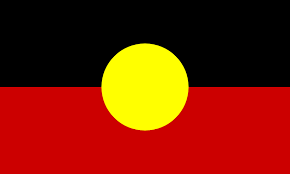By Nazli Bahmani
Epidemiology, working from home, and vaccination targets are all examples of how the COVID-19 pandemic has changed the fundamental nature of our lives.
Similarly, the pandemic has highlighted issues that have been simmering under the surface for decades. One example is a renewed focus on financial vulnerability.
Though it was initially hailed as “the great equaliser”, over time the pandemic has illuminated some of the inequalities that are overlooked in pockets of our society.
Research conducted by our client, Good Shepherd, in conjunction with Roy Morgan, found that the pandemic has seen the emergence of the ‘newly vulnerable’ – a group of people experiencing financial vulnerability who have not previously sought assistance or been considered financially insecure.
The findings paint a bleak picture – two in five Australians have experienced negative employment outcomes because of the pandemic, and economic abuse has risen, often under the guise of financial stress.
Economic or financial abuse occurs when the abuser exerts control over another person’s economic security. By controlling, exploiting, or sabotaging the victim’s finances, the abuser can diminish their power and prevent them from accessing self-sufficiency.
A UNSW study for the Commonwealth Bank’s (CBA) Next Chapter program found that financial abuse frequently occurs alongside other forms of intimate partner violence.
Another CBA study found that 40% of those surveyed had experienced, or known someone who had experienced, financial abuse.
Given the huge discrepancy between the financial security of companies and individuals because of COVID-19, it is easy to see why these frightening figures are now attracting attention.
In the same year that JB HI-FI and Afterpay posted profit of $332m and $519m respectively, a survey led by the Melbourne Institute found that over 50% of Australians were having difficulty paying for essential goods and services or making ends meet.
This juxtaposition was amplified for the public when it was revealed that many companies received JobKeeper payments and subsequently turned a profit.
Caught in the crossfires of public and political pressure, and an uncertain economic outlook, these issues have raised important questions about the ability of companies to adapt to emerging issues, and the need to be cognisant of societal and stakeholder expectations.
In this climate, there are steps your business can take to maintain a strong sense of social responsibility.

Two in five Australians have experienced negative employment outcomes because of the pandemic
Understand financial vulnerability
Before making decisions on how to act in response to social issues, it is imperative to understand the issue as a whole and how your company is positioned in relation to it.
Companies making decisions on what to do with their JobKeeper payments or trying to understand the public response should understand the issue of financial vulnerability.
A school may respond differently to a financial services firm. But in both cases, an understanding of how this issue impacts clients, staff and other stakeholders will improve the ability of leaders to take appropriate actions.
While financial vulnerability does not have a straightforward definition, it is best understood in relation to a person’s ability to respond to financial shocks and to access safe financial products, as well as their employment security, their financial education, and even their social capital.
These factors are fluid – a person’s financial vulnerability will change over their lifetime. But what is key to understand is that although there may be disproportionate representation in some groups, any person, regardless of their standing, can become financially vulnerable. That vulnerability may be temporary or can become entrenched if the person is not able to quickly recover from the shock
When a person is financially vulnerable, their overall wellbeing is impaired. Financial stress can lead to poor mental health and health outcomes that over time make it more difficult to act.
Exclusion from services and predatory lending practices work together to further embed people in cycles of financial stress.
Build in financial wellbeing practices
Beyond the current crisis, building your understanding of how your business is positioned in relation to these issues may open opportunities to strengthen your services and have a social impact. There may be opportunities to incorporate financial wellbeing practices into your workplace.
Scaled pricing is one common tool used by many medical or legal services to allow customers access to products and services they may have been locked out of previously. Hardship policies that work with clients experiencing financial shocks are also common in energy or utilities services.
While there will never be one right fit for everyone, exploring the options available to you may also open opportunities to partner with government and industry to maximise impact.
At Banksia Strategic Partners, we help clients understand the broader policy context in which they are making decisions by:
- Strategising with businesses to identify where their interests and social values align, thereby helping them build measures to implement.
- Understanding the political environment and how social impact efforts can help deliver outcomes for governments. In turn, this can help strengthen relationships and build credibility as a trusted partner of government on future strategic goals.
- Forming partnerships with community organisations and not-for-profits that may help deliver this social impact and result in an ongoing collaboration that can expand opportunities and provide an entry point to government.
- Allowing companies to understand and navigate this environment by providing frank and fearless advice with a social impact lens.
- Telling stories. Any genuine social impact effort, such as financial wellbeing in pandemic times, is a good news story to tell about your business that can be communicated internally (staff, industry stakeholders) or externally (media, government, prospective clients) with internal morale and external brand outcomes.
Please feel to reach out via our contact page if you would like to discuss your own business’ positioning, or any other strategic communications matter.


